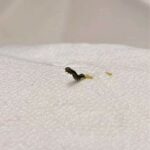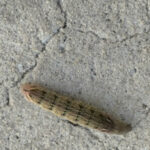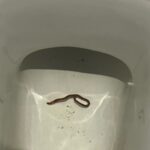You may have just discovered one of your pets has worms – how do you protect the other animals in your home? How do you prevent the worms spreading from one pet to another? First, a visit to your veterinarian is in order; it’s important to identify which worms your cat or dog has contracted before you can begin protecting other pets. A majority of puppies and kittens are born with some type of parasite in their systems.
Fleas, mosquitoes, the soil, and animal feces are the main carriers of most parasitic worms.
-Heartworm is a very serious form of animal parasite. It is spread through mosquito bites.
-Hookworms are common in puppies and kittens, but can also easily transfer adult animals. Transmission is through feces that is left on the ground or dug up in sandboxes and gardens.
-Roundworms are also common in animals of all ages. Treatments are administered at two-week intervals.
-Tapeworms can appear in both dogs and cats. They are flea-borne. The segmented worms break up and can be seen in the animal’s stool as “grains of rice.” Medication will kill the adults, but there is no permanent cure, other than flea control.
-Whipworms can be prevalent in dogs, but rarely affect cats. They are difficult to treat and medications may take up to three months or more before the problem resolves itself.
Healthy adult animals are at far lesser risk of contracting worms from other pets in the home due to a strong immune system. Shots during yearly exams and regular heartworm prevention help develop immunities and protect from most worms. This is not to assume they won’t be infected, however. Even healthy pets with no outward symptoms may become victims.
While some experts recommend isolating a pet, this is generally considered to be detrimental to the animal’s emotional and social well-being. However, when introducing a new kitten or puppy to the household, it is wise to consider isolation until a veterinarian has made a thorough examination, and determined them free of any contagious parasites or diseases.
Once an animal has begun treatment for a worm infection, several precautions can be taken to minimize the risk of infecting other pets. Clean litterboxes on a regular basis and, if possible, as soon as the infected animal has used it. Always use surgical gloves when handling feces, especially when parasites are expected or present. This should also be done outdoors. Remind family members to wash thoroughly after handling any pet. While transmission through a pet’s loving slurps is rare, discourage any licking around the face. Use separate bedding for infected animals and wash all items frequently. Disinfect and vacuum areas where the animal plays.
Most over-the-counter worm medications are not as potent as those available through your vet’s office. Flea control is also a critical defense in protecting other pets in the household. Once you have determined which parasitic worm you’re dealing with, you will also know what measures to take.
All About Worms is always free, always reader-supported. Your tips via CashApp, Venmo, or Paypal are appreciated! Receipts will come from ISIPP Publishing.














